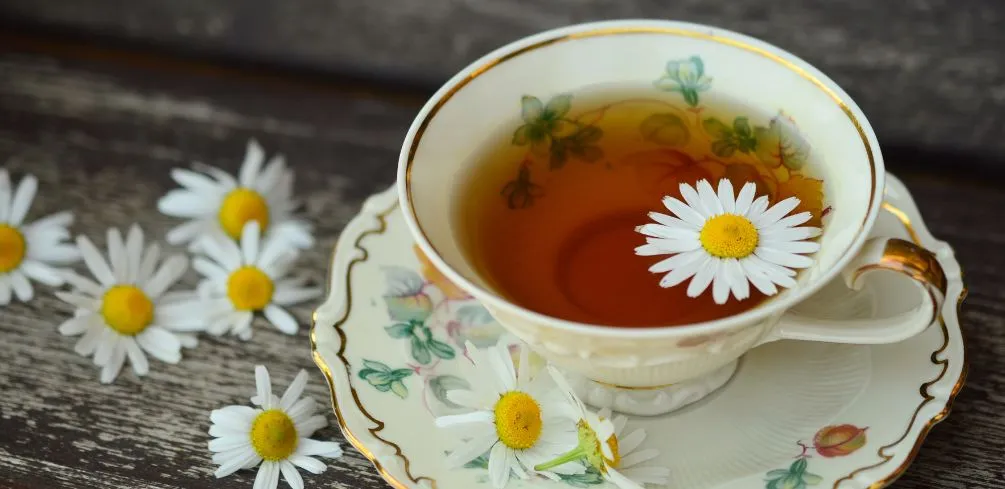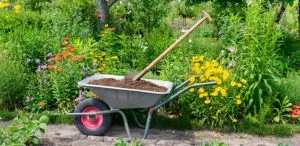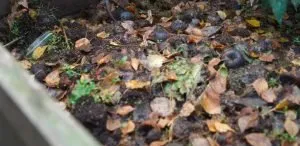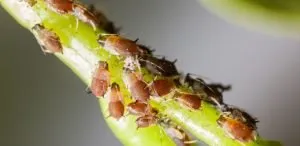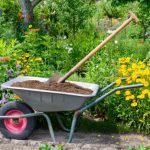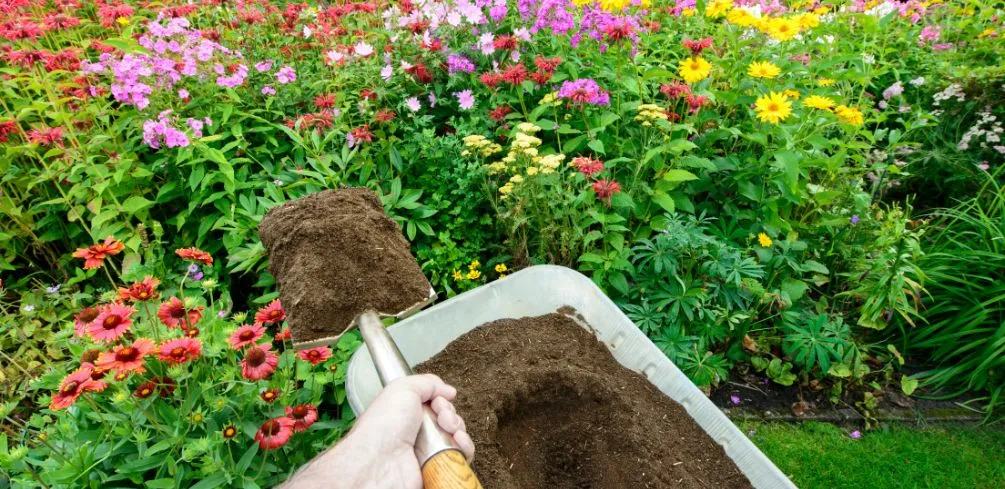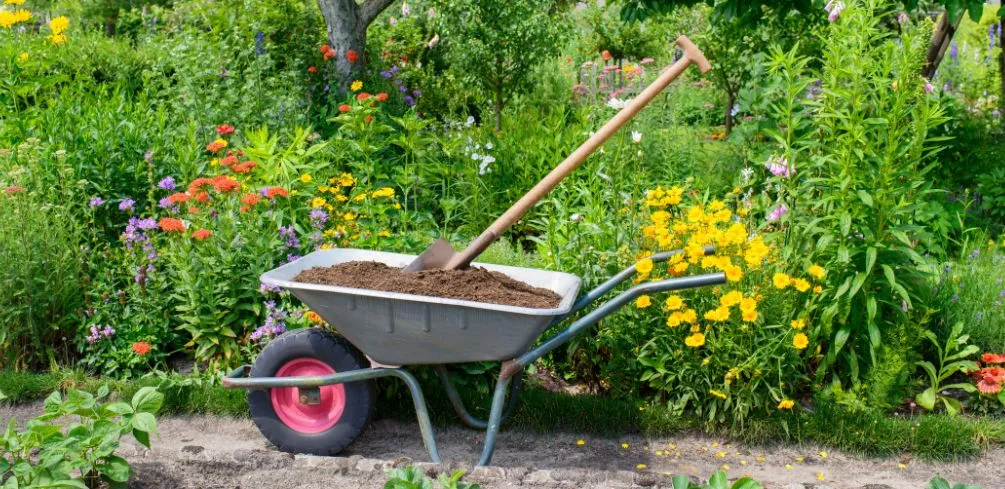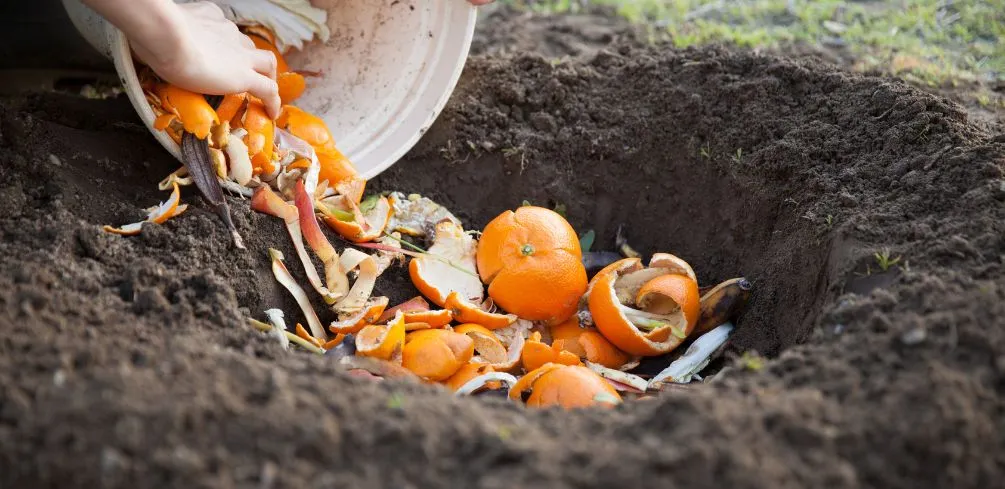Compost tea, a liquid fertilizer made from steeping compost in water, has become increasingly popular among gardeners and farmers as a natural alternative to chemical fertilizers. This organic brew is believed to contain beneficial microorganisms that enrich the soil and promote plant growth.
Researchers have recently conducted numerous studies on compost tea to understand its benefits and effectiveness. The use of compost tea dates back to ancient times when farmers would use animal manure mixed with water to nourish their crops.
Today, the practice has evolved into a science-based approach that involves carefully selecting and brewing specific types of compost to create a nutrient-rich liquid extract.
As interest in sustainable agriculture grows, many researchers are exploring the benefits of using compost tea as an environmentally friendly way to boost plant health and productivity. In this article, we will explore some potential benefits of using compost tea in gardening and farming practices based on recent scientific findings.
Boosting Plant Growth And Health
Compost tea brewing and application techniques have been highly regarded for their positive effects on plant growth and health. The benefits of compost tea are numerous, with some enthusiasts even claiming it to be a ‘miracle elixir’ for plants.
While this may sound like an exaggeration, the evidence shows that compost tea can provide significant benefits to plants. One of the major benefits of using compost tea is its ability to stimulate plant growth.
Compost tea contains microorganisms essential for soil health and plant growth, such as nitrogen-fixing bacteria and mycorrhizal fungi. These microorganisms help break down organic matter in the soil, releasing important nutrients that plants need to thrive.
Additionally, the beneficial microbes in compost tea also help protect plants from harmful pathogens and pests, leading to healthier plants. With these benefits in mind, it is clear that incorporating compost tea into your gardening routine can be a great way to boost plant growth and health.
Enhancing Soil Fertility And Structure
As discussed in the previous section, compost tea has proven effective in boosting plant growth and health. However, the benefits of compost tea are not limited to just plants.
Compost tea can also significantly enhance soil fertility and structure. Compost tea contains diverse microorganisms that promote soil health by improving microbial activity. These microorganisms include bacteria, fungi, protozoa, and nematodes.
When applied to soil, these microorganisms help break down organic matter and convert it into nutrients that plants can absorb easily. They also create a healthy environment for plant roots by improving soil structure and water-holding capacity. This leads to improved root development and overall plant growth.
In summary, the use of compost tea can significantly improve soil health by enhancing microbial activity through the introduction of various beneficial microorganisms. This results in better nutrient availability for plants and improved soil structure.
In the next section, we will further explore how compost tea can benefit plants and the surrounding ecosystem.
Suppressing Plant Diseases
One of the most significant benefits of compost tea is its ability to suppress plant diseases. This is due to the natural pesticides and microbial activity present in the tea.
The natural pesticides in compost tea work by repelling or killing disease-causing organisms, while the microbial activity helps create an environment that is hostile to such organisms. Compost tea can be particularly effective at suppressing soil-borne diseases caused by fungi, bacteria, or viruses that live in the soil.
In addition, it can also help protect plants against foliar diseases caused by pathogens that attack leaves and other above-ground plant parts. By using compost tea as a preventative measure, gardeners and farmers can reduce their reliance on synthetic pesticides and fungicides, which can have negative environmental impacts.
Reducing Environmental Impact
As the world becomes more aware of human activities impact on the environment, eco-friendly solutions have become increasingly popular. One area where this trend is particularly noticeable in gardening.
Green gardening techniques, such as composting and natural pest control methods, are becoming more popular as people seek ways to reduce their environmental impact. Composting is a great way to reduce waste and create nutrient-rich soil for your garden.
Using kitchen scraps and yard waste to create compost, you can divert waste from landfills while reducing your dependence on synthetic fertilizers. Additionally, natural pest control methods such as companion planting and using insect-repelling plants can help reduce the need for harmful pesticides.
These green gardening techniques benefit the environment and contribute to a healthier garden overall.
Improving Nutrient Uptake And Yield
Reducing environmental impact is a crucial aspect of sustainable agriculture. Organic gardening techniques are gaining popularity, and compost tea application is one such method that has gained attention as a sustainable and effective solution.
Compost tea is a liquid extract made by steeping high-quality compost in water. The resulting liquid contains beneficial microorganisms, nutrients, and other compounds that promote plant growth. Compost tea benefits not only the plants but also the environment.
It improves soil quality by enhancing soil structure, increasing water retention capacity, and reducing erosion. Using compost tea reduces the need for synthetic fertilizers and pesticides, which helps prevent groundwater contamination and promotes biodiversity in soil ecosystems. Moreover, compost tea can be easily produced on-site using readily available materials, making it an affordable option for small-scale farmers and gardeners.
Incorporating compost tea into organic gardening can lead to more sustainable and environmentally friendly agricultural practices. Improving nutrient uptake and yield is essential for maximizing crop production while minimizing resource use. Compost tea application has increased nutrient availability in soils, leading to improved plant growth and yield.
The microorganisms present in compost tea help break down complex organic matter into simpler forms that are more readily taken up by plants’ roots. Additionally, the nutrients in compost tea are released slowly over time, providing consistent nourishment to plants without causing nutrient imbalances or leaching. Furthermore, research has shown that using compost tea can improve disease resistance in plants due to a higher level of beneficial microorganisms in the soil ecosystem.
By supporting healthy plant growth naturally, compost tea reduces the need for chemical treatments that can negatively impact human health and the environment. As such, incorporating compost tea into organic gardening techniques can result in higher yields while promoting sustainable agricultural practices long-term without compromising future generations’ ability to meet their needs.
Frequently Asked Questions
How Long Does It Take To Make Compost Tea?
While the benefits of compost tea are well-known, some individuals may hesitate to invest time in making it due to concerns about brewing time. However, the brewing process for compost tea typically takes 24-48 hours, depending on the specific recipe and desired strength.
While this may seem like a significant chunk of time, the benefits of using compost tea in gardening and agriculture can be substantial, in addition to providing plants with essential nutrients and beneficial microorganisms, compost tea has also been shown to suppress harmful plant pathogens and increase soil structure and water-holding capacity.
Ultimately, the small amount of time invested in making compost tea is well worth considering the numerous benefits it can provide for plant growth and health.
Can Compost Tea Be Used On All Types Of Plants?
Compost tea is a liquid fertilizer made from steeping compost in water, and it can be used to improve plant growth and soil health. Compost tea applications are suitable for various plants, including vegetables, flowers, trees, and shrubs. However, not all plants may respond positively to this type of fertilizer.
Plant compatibility with compost tea depends on various factors, such as the stage of plant growth, soil conditions, and the type of compost used. Therefore, conducting small-scale trials before applying compost tea to all plants in a garden or farm is recommended.
When used appropriately, compost tea can be a valuable addition to any gardening or farming practice.
Is It Safe To Use Compost Tea On Edible Crops?
When considering the use of compost tea, safety is a primary concern, particularly when using it on edible crops. While compost tea has potential benefits for plant growth and soil health, its use on food crops must be done cautiously.
Concerns about potential contamination from pathogens such as E. coli or Salmonella exist. Therefore, it is essential to follow proper protocols for making and applying compost tea to mitigate any risks associated with using this organic fertilizer.
Additionally, ensuring that the compost used in tea production is free from any toxic substances is also crucial for safe application on edible crops.
Can Compost Tea Be Stored For Later Use?
Storage options and shelf life are important considerations when using compost tea for gardening. Compost tea can be stored for later use, but it is important to do so properly to ensure its effectiveness.
The shelf life of compost tea will depend on several factors, such as the type of compost used, the brewing method, and storage conditions. Generally, composted tea can last up to a week if stored in a cool place out of direct sunlight and adequately aerated. However, using fresh compost tea is always recommended for optimal results.
Proper storage options such as air-tight containers and refrigeration can help extend the shelf life of compost tea, allowing gardeners to reap its benefits over a longer period of time.
Does The Quality Of The Compost Use Effect The Quality Of The Compost Tea?
The quality of compost used is a crucial factor affecting compost tea production. Compost Tea: Compost Quality Impact is a topic that has gained considerable attention in recent years.
The brewing time variations and microbial composition depend on the type of compost used. It is essential to use high-quality compost for optimal results, as low-grade compost can have pathogens and chemical residues that may harm plants.
The compost should be free from contaminants like heavy metals, pesticides, and herbicides, which can affect the health of the soil and plants. Therefore, it is recommended to use well-aged compost with balanced carbon-to-nitrogen ratios for making high-quality compost tea.
Understanding how Compost Tea: Compost Quality Impact works can lead to healthier soil and better plant growth, making it an important subject for gardeners and farmers.
Conclusion
Compost tea is a valuable addition to any gardener’s arsenal, offering numerous benefits to plants and soil health. It can be made in as little as 24 hours and is suitable for use on all types of plants, including edible crops.
However, ensuring the compost used is high quality is important to produce effective compost tea. In conclusion, compost tea is a nourishing tonic for plants and soil.
Like a musical symphony, the ingredients blend together harmoniously to create a powerful elixir that invigorates and strengthens the ecosystem. Using compost tea regularly, gardeners can enhance plant growth and yield while reducing their reliance on chemical fertilizers.
With its many benefits, it is no wonder that compost tea has become an increasingly popular choice among gardeners worldwide.
